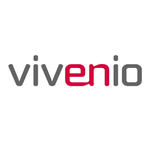Description

Bookwhen

Oxford Abstracts
Comprehensive Overview: Bookwhen vs Oxford Abstracts
Bookwhen and Oxford Abstracts are both tools designed to facilitate different aspects of event management. Here's a comprehensive overview of each, focusing on their primary functions, target markets, market penetration, and unique features:
Bookwhen
a) Primary Functions and Target Markets
- Primary Functions: Bookwhen is primarily an online booking and scheduling system that allows organizations to manage and schedule a variety of events, classes, or workshops. It offers features such as event creation, user registrations, payment processing, and customizable booking forms.
- Target Markets: It targets a wide range of markets including sports and fitness studios, educational institutions, community groups, and any business that needs a flexible booking system. Small to medium-sized businesses and independent event organizers are its primary users.
b) Market Share and User Base
- Bookwhen tends to serve a niche section of the market, focusing on organizations that require simple, yet efficient scheduling and booking solutions. It may not have as large a user base as some more generic scheduling platforms like Eventbrite, which targets larger, more varied events. However, Bookwhen has carved out a solid presence among smaller businesses and specific niches like fitness and community activities.
c) Key Differentiating Factors
- Customization: Bookwhen offers high levels of customization for booking forms and events, allowing users to tailor the registration process as needed.
- Flexibility: It supports a wide array of payment systems and integrates easily with other tools. This flexibility makes it appealing for businesses with specific needs.
- User-Friendly Design: Bookwhen is known for its intuitive interface that makes it accessible even to users with minimal technical expertise.
Oxford Abstracts
a) Primary Functions and Target Markets
- Primary Functions: Oxford Abstracts specializes in managing academic and professional conferences. Its features include abstract submission, peer review management, program building, and attendee engagement tools.
- Target Markets: The primary market for Oxford Abstracts is academic institutions, professional societies, and organizations conducting scientific, medical, or scholarly conferences.
b) Market Share and User Base
- Although Oxford Abstracts is not as broadly known as some entry-level event management platforms, it holds a respected position in the academic conference management niche. Its specialized tools make it a preferred choice for conference organizers in academia and research fields.
- Its user base includes universities, research institutions, and large conference organizers that require a sophisticated abstract management system.
c) Key Differentiating Factors
- Focus on Academic Conferences: Unlike generic event management platforms, Oxford Abstracts is dedicated to handling the complexities of academic conference management, such as handling submissions and peer reviews.
- Advanced Abstract Management: It offers detailed workflow management for abstract submissions, including customizable review processes and collaboration tools that are specifically designed for research and academic environments.
- Integration and Scalability: The platform provides integration with other tools (like CRMs) and scalability to handle large numbers of submissions and attendees.
Comparison and Conclusion
- Market Share: Both tools are niche players in their respective fields. Bookwhen targets small to medium enterprises needing booking solutions across various industries, while Oxford Abstracts focuses on the academic and research conference segment.
- Differentiating Factors: The main distinction lies in their specialization. Bookwhen is more versatile in terms of the types of events it supports, while Oxford Abstracts provides specialized features for academic and professional conferences.
- User Experience: Both platforms are designed with user-friendliness in mind but cater to different types of event management needs, reflected in their respective interfaces and features.
In summary, both Bookwhen and Oxford Abstracts offer robust solutions tailored to the needs of their audiences, with Bookwhen catering to more general event scheduling needs and Oxford Abstracts focusing on academic conference management.
Contact Info

Year founded :
2014
+44 186 592 2123
Not Available
United Kingdom
http://www.linkedin.com/company/bookwhen-ltd

Year founded :
Not Available
Not Available
Not Available
Not Available
Not Available
Feature Similarity Breakdown: Bookwhen, Oxford Abstracts
Bookwhen and Oxford Abstracts are both platform solutions aimed at managing and organizing events, but they cater to somewhat different audiences and needs. Here’s a breakdown comparison for both platforms:
a) Core Features in Common
-
Event Management: Both platforms offer comprehensive tools to organize and manage events, from setting up event details to managing schedules.
-
Registration and Ticketing: They provide options for event registration and ticket sales, allowing organizers to create different ticket types and manage attendee information.
-
Payment Processing: Integration with payment gateways to collect fees from attendees is available on both platforms.
-
Reporting and Analytics: Both offer features to generate reports and gain insights into registration data, attendee demographics, and other key metrics.
-
Email Notifications: Automatic email notifications for registration confirmations, reminders, and updates are supported by both platforms.
b) User Interface Comparison
-
Bookwhen:
- Typically presents a straightforward, user-friendly interface that is accessible for users without much technical knowledge.
- The design is often clean and minimal, focusing heavily on simplicity and ease of navigation for both administrators and attendees.
- Their booking pages are customizable, allowing organizers to match the registration page aesthetics to their branding.
-
Oxford Abstracts:
- Geared more towards academic conferences, the interface may appear slightly more complex due to its extensive feature set tailored for professional and scholarly gatherings.
- Offers a detailed dashboard with comprehensive options that cater to event organizers who need depth and a wide range of functionalities.
- Tends to have a more structured and formal appearance, likely reflecting its focus on professional conferences.
c) Unique Features
-
Bookwhen:
- Highly flexible with event scheduling, catering to various event types such as workshops, classes, and community events.
- Offers a robust set of integrations with various tools and platforms like Zoom, Mailchimp, and others, enhancing its ability for virtual event management.
- Simplicity and ease-of-use are among the stand-out attributes that make it appealing for small to medium-sized event organizers.
-
Oxford Abstracts:
- Specializes in handling academic conferences, with features like abstract submission and reviews being a major draw for academic and research event organizers.
- Provides tools for peer review processes, which is crucial for conferences or events that require academic paper submissions and evaluations.
- Customizable submission and review workflows are unique selling points, providing a tailored experience for scholarly events.
In summary, while both platforms excel in event management and share many common features, Bookwhen is noted for its simplicity and flexibility across various event types, whereas Oxford Abstracts is distinguished by its focus on academic and professional conferences with robust submission and review functionalities.
Features

Not Available

Not Available
Best Fit Use Cases: Bookwhen, Oxford Abstracts
Bookwhen and Oxford Abstracts are both specialized platforms designed to streamline different aspects of event planning and management. Here’s how they cater to various needs and industries:
a) Bookwhen
Best Fit Use Cases:
-
Small to Medium-sized Businesses (SMBs): Bookwhen is ideal for SMBs looking for an easy-to-use tool for managing event bookings and registrations. This includes yoga studios, gyms, community centers, and other local businesses where class or event scheduling is frequent.
-
Educational Programs and Workshops: Schools, colleges, or independent educators running workshops or classes can benefit significantly from Bookwhen. It offers functionalities tailored to manage recurring classes and educational sessions.
-
Community and Recreational Groups: Organizations or informal groups that frequently host community events, recreational activities, or hobby clubs can utilize Bookwhen for its simple interface and efficient scheduling.
-
Non-profits and Charities: Organizations that need to manage registration for events like fundraisers, charity runs, or awareness events can leverage Bookwhen for its cost-effectiveness and ease of use.
Industry Vertical and Company Size:
- Bookwhen primarily targets the service industry vertical but has a versatile application across other sectors due to its adaptable nature.
- It is well-suited for small to medium-sized organizations, particularly those that require straightforward event registration and scheduling tools without the complexities needed for large-scale corporate events.
b) Oxford Abstracts
Best Fit Use Cases:
-
Academic Conferences and Symposiums: Oxford Abstracts provides sophisticated tools for managing academic content, making it an excellent choice for universities and research institutions organizing conferences that involve abstract submissions and peer reviews.
-
Scientific and Medical Events: Organizations orchestrating events in scientific or medical fields benefit from Oxford Abstracts' ability to handle complex data, including abstract submissions, reviews, and scheduling scientific sessions.
-
Professional Associations and Societies: Professional bodies hosting annual meetings or conferences with a focus on knowledge dissemination and professional development often prefer Oxford Abstracts to manage their content-rich agendas.
Industry Vertical and Company Size:
- Oxford Abstracts has a strong focus on the academic, scientific, and professional events industry verticals. Its features are tailored for content-heavy events where managing research abstracts and papers is a necessity.
- It typically caters to medium to large organizations, including universities, research institutions, and professional associations, which require comprehensive tools for content management beyond basic scheduling and registration.
In summary, while Bookwhen is best suited for organizations and businesses that prioritize ease of registration and scheduling for community-oriented or educational events, Oxford Abstracts is designed for organizations that need robust tools for handling academic and professional event content. This distinction allows each platform to serve different industry needs effectively.
Pricing

Pricing Not Available

Pricing Not Available
Metrics History
Metrics History
Comparing teamSize across companies
Conclusion & Final Verdict: Bookwhen vs Oxford Abstracts
To provide a conclusion and final verdict for Bookwhen and Oxford Abstracts, it's essential to evaluate each platform based on various factors, such as features, user experience, pricing, and the specific needs they fulfill.
Conclusion and Final Verdict
a) Best Overall Value:
- Oxford Abstracts is likely to offer the best overall value for organizations and event managers primarily focused on academic and research conferences due to its specialized features for handling submissions, reviews, and scientific program organization.
- Bookwhen, on the other hand, may provide better value for those looking for a flexible booking system applicable to various events like workshops, classes, and courses, thanks to its versatile scheduling capabilities and straightforward booking processes.
b) Pros and Cons:
Oxford Abstracts:
- Pros:
- Tailored for academic and research events, offering robust features for managing abstract submissions and peer reviews.
- Integration with several academic databases and platforms.
- Customizable workflow to fit the needs of scholarly events.
- Cons:
- May be overly complex for users needing simpler booking functionality.
- Could involve a steeper learning curve for non-academic events.
Bookwhen:
-
Pros:
- User-friendly interface that simplifies event booking and management.
- Highly adaptable for various types of events beyond academic contexts.
- Straightforward pricing model with options suitable for smaller organizations.
-
Cons:
- Limited features for complex abstract management and peer reviewing.
- May not integrate as deeply with academic-specific tools.
c) Recommendations for Users Trying to Decide:
-
Event Focus: If the primary objective is to handle academic conference needs, especially relating to abstract submissions and reviews, Oxford Abstracts is the more suitable choice. For those managing a wider variety of events such as workshops, fitness classes, or community events, Bookwhen is likely the better fit.
-
Feature Requirements: Users should list the specific features they need (e.g., submission tracking, event scheduling, participant communication) and match these to what each platform offers.
-
Budget Considerations: Evaluate the budget constraints and see which platform fits financially, considering any potential additional costs for required features or integrations.
-
Ease of Use and Support: Consider the learning curve each platform presents and the level of customer support offered, opting for the one that aligns with the team's technical comfort and support needs.
Ultimately, users should trial both platforms if possible, to gain hands-on experience with each system, evaluating how well each fits their organizational workflow and event goals.
Add to compare
Add similar companies



